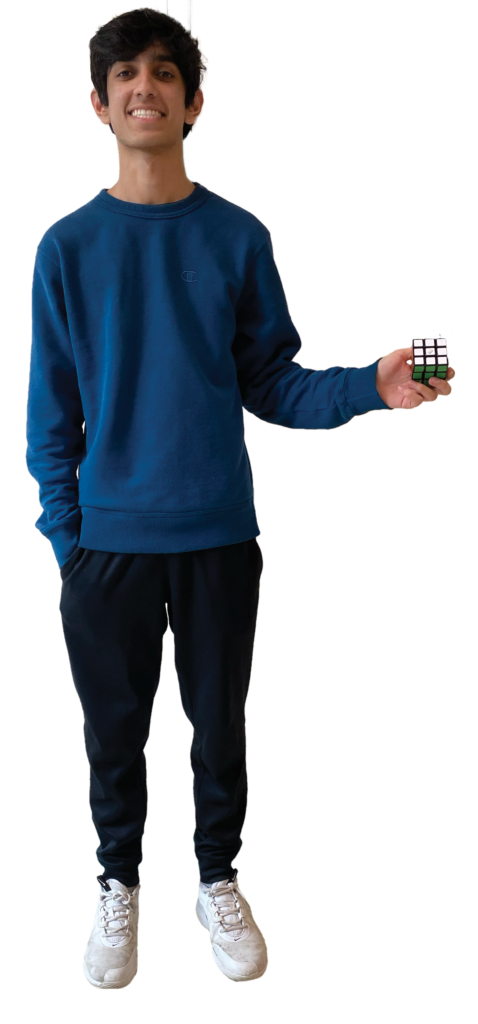Student Spotlights: IN Conversation With Daud Malik, 2/16/2023

When did you first start learning how to solve Rubik’s Cubes and when did you start competing?
I started learning how to solve [a Rubik’s Cube] when I was in fourth grade, but I got into competitions when I was in sixth grade because of YouTubers that I used to watch, who would do all these Rubik’s Cube challenges. I waited until there was [a competition] in the area and the first one I went to was in Louisville. Seeing everyone in that environment and that speed-solving community, I got [hooked]. And so, I strive to improve my time as much as I can.
Why is solving Rubik’s Cubes a passion for you?
My brain was really math-heavy growing up, so solving puzzles was not only something that I did with my family growing up but then something that I could competitively get better at. Staying on that puzzle aspect was something that really intrigued me. I got addicted to getting faster. I think that was the main thing, seeing your time drop consistently, just as you’re practicing and learning new algorithms and new sequences to solve different parts of the cube. That’s what motivated me to keep going.
What are the different competitions and events that you have competed in?
I’ve competed in four by four, five by five, pyramix [and] skewb. Two by two is my main event. Other than qualifying for the Nationals and Worlds, you’re beating your personal best and then you’re getting ranked in the state. For the past six years, I have been consistently top 50 in Ohio [in my event]. The next [competition] I’m going to is in mid to late April at [Ohio State University] (OSU) because OSU has a Rubik’s Cube club where they do competitions. After that is Nationals which is in Pittsburgh in July.
Besides competitions, what other activities are you involved in with Rubik’s Cubes?
In sixth, seventh and eighth grade I taught after-school enrichment at Mason Intermediate (MI). It was a Rubik’s Cube program so I would do that throughout the month. Each day, I would take [the kids] through [and it] would be a different step to solve the cube. By the end, all the kids would have their cubes completely solved and the method exposed so that they could take them home and practice themselves.
I went to OSU last November [for a competition] and the kid sitting next to me before I competed was one of the same kids that was in my MI program. It’s really cool that not only seeing the passion of my skills but also seeing that I was able to instill that in other people so long ago and then that continuing on is obviously something that was really cool.
